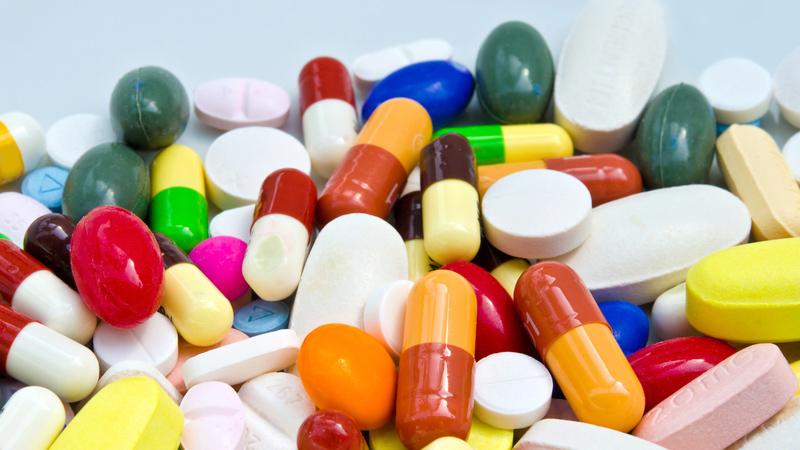
2020. This is the deadline given by the State Pharmaceutical Corporation (SPC) to stop all medical drug imports to the country and instead, manufacture them locally in collaboration with foreign investors.
Making this disclosure at an outspoken interview with our sister paper the Daily News, a few days ago, Chairman SPC Sarath Liyanage discussed the much maligned image of the state owned drug corporation in the past and his determination to turn around its tarnished image.
Set up in 1974, the SPC is the largest supplier of drugs in the country with over six hundred employees, tasked with delivering quality assured health care items at an affordable price, besides educating the public on the rational use of drugs. The SPC is also reportedly hoping to move some of SPC outlets to their own premises to cut costs and bring in more business.
SPC manufactures Jeevani a saline energy drink given to help sick children and adults to recuperate from illness, such as, diarrohea, and 47 other health related items, and is poised to increasing . Liyanage has reportedly said they may look at expanding in the future, earning more profits, besides saving on valuable foreign exchange, as they would now be producing the drugs locally, albeit with the help of foreign investors.
Commendable
The move is commendable, and comes at a time when drug prices have rocketed in recent years.
The big question asked by many is whether the SPC could actually deliver on its promise, come 2020?.
It can- says Liyanage . To quote our sister paper , “ We have tied up with both local and foreign pharmaceutical manufacturing companies to set up their factories in Sri Lanka.
“We have given them a buy back guarantee and pharmaceutical companies have already set up two of the region’s largest manufacturing plants at Horana and Koggola. They are also allowed to import tax free, thus encouraging more companies to set up factories in Sri Lanka.”
Other issues Antibiotics
Despite recent efforts by the state to regularize the sale and distribution of antibiotics, flagrant violation of laws have not deterred illegal sales of substandard drugs countrywide. Open markets and private pharmacies are rife with outdated antibiotics, drugs without labels, relabelled drugs with prices exceeding the newly revised prices, while hoarding of drugs continues with impunity.
Allergic reactions
Overuse of antibiotics or dispensing of antibiotics that have led to severe allergic reactions is another emerging problem that needs to be addressed.
Just this morning, an elderly lady aged 80 told the Sunday Observer how an antibiotic given to her had nearly snuffed out her life. Trixie Martenstein, 80, says, she is still recovering after the physician to whom she was taken for an undiagnosed illness, had prescribed a strong antibiotic which had caused her breathing problems and made it impossible for her to eat or drink. “ I lost ten kilograms in weight as a result”, she says..”
Too many
Taking too many antibiotics or a mixture or cocktail of antibiotics at the same time for related illnesses can be equally dangerous. Recent surveys carried out by the Health Ministry have revealed that paracetamol, more popularly known as Panadol, is one of the most overused antibiotics in Sri Lanka. Heath officials have warned that the drug should be taken strictly according to the prescribed dosage by a qualified physician .
Other drugs abused due to overuse, are stronger pain killers, and certain cough syrups that many of our youth are now becoming addicted to, due to their containing certain chemicals that give them extra energy or have a calming effect which they need before an examination.
Alternative medication
Western drugs aside, there is also the growing market for alternative medication which, while coming within the purview of the pharmaceutical industry, is a grey area that needs to be scrutinized. Many of these local herbal drugs come with attractive labels and fake promises.
The Medical Supplies and Pharmaceutical division of the Health Ministry takes a dim view about this. Those schooled in the old tradition and used to Western drugs continue to be faithful to drugs prescribed by western medicine physicians.
“ I have been using the same drug for my heart condition for the past forty years and will never change since I have had no problem with it” says 81 year old housewife, Shanti Perera.
Having enough affordable quality drugs is thus one aspect only of an unfinished painting. Health officials need to brush in other measures. They can set in motion a move for more interactive exchange of opinions from all stakeholders, including the public. Every citizen should have a hotline like that given for the Police or Accidents so that they could complain about any drug that is substandard or unavailable or has a wrong labelling, without the fear of a nasty comeback. Finally, education of the people on the correct use of medicinal drugs is extremely important.
If properly implemented and regularly updated and critically evaluated, the pharmaceutical industry in Sri Lanka can stand tall among other giants in the region.
